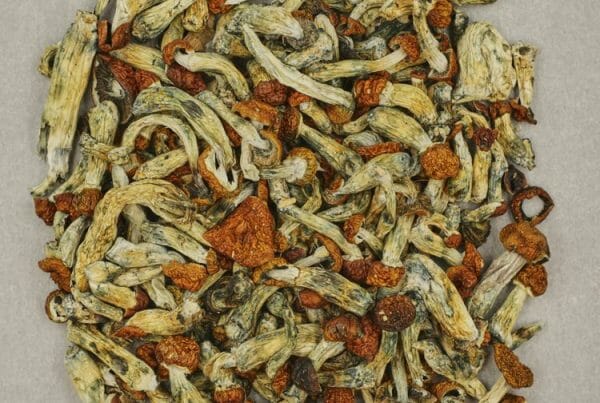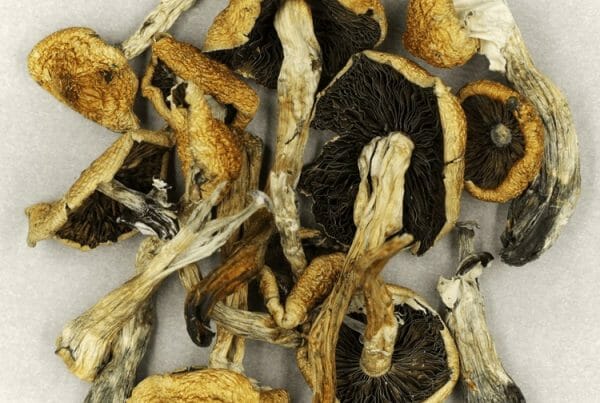Recovery options for mountain athletes have shifted from conventional medicine to a growing interest in alternative therapies through magic mushroom delivery.
Studies have shown how psilocybin, the active compound in magic mushrooms Canada, can interact with the brain and help recovering patients.
Due to the growing interest in this psychedelic compound, express shipping has become readily available to aid paralyzed athletes.

Table of Contents
Key Takeaways:
- Psilocybin may aid mental and physical recovery via neuroplasticity, reactivating neural connections, and psychological support.
- With the growing acceptance of its therapy, a delivery service in places like Canada is making it easier for paralyzed players to access these alternative therapies.
- A shroom delivery business provides easy access to alternative healing options by eliminating the need to rely on unreliable sources.
Overview of Paralysis in Mountain Sports
When a skier hits a tree or a climber takes a ground fall, the force of impact is directed at the spine, leading to spinal cord injuries (SCI). Depending on where the cord sustains trauma, athletes might face anything from partial weakness to full paralysis below the injury site.
An abrupt stop caused by a collision with an object or an unlucky landing can compress or even fracture vertebrae. Meanwhile, rock climbers face risk from high falls, with fractures to the cervical vertebrae that can lead to quadriplegia (paralysis in all four limbs).
Its Psychological Impact
For sportspeople accustomed to testing the limits of human endurance, paralysis is a seismic shift. A painstaking struggle suddenly replaces a once unfettered life of high adrenaline and physical freedom with everyday tasks, and for many, this leads to what clinicians call “situational depression.”
Studies show that up to 40% of individuals with SCI experience depression and anxiety, and PTSD rates are similarly high.
This isn’t just about losing the ability to perform in sports; it’s about losing a primary source of self-worth and community. Cognitive-behavioural therapists call this an “identity crisis,” where one’s sense of self feels incongruent with current abilities.
Success Stories in Psilocybin-Assisted Recovery
Jim Harris, a renowned adventure photographer and mountaineering instructor, experienced a life-altering event on November 24, 2014. While snowkiting in Punta Arenas, Chile, he was swept by a powerful gust, slamming him to the ground and breaking nine vertebrae.
This accident left Harris paralyzed from the chest down. By seven months, he could move with a walker, yet his right hamstring remained stubbornly unresponsive—a barrier to walking independently.
His journey took an unexpected turn during a trip to California’s High Sierra Music Festival. Surrounded by nature and live music, he tried the dried mushrooms.
He discovered he could move his right hamstring, a breakthrough he had not achieved in eight months of conventional physical therapy. This wasn’t a fleeting sensation; the neuromuscular connection persisted, marking a substantial step in his recovery.
How Mushrooms Promote Neurological Healing
Its potential in cases like Harris’ comes down to its effects on neuroplasticity and neurogenesis. Neuroplasticity, the brain’s ability to restructure itself by forming new neural connections, is important for recovery in cases of SCI.
Mark Wingertzahn, chief science officer at Wesana Health, states that its interaction with neurotransmitters helps “reverse atrophy and increase neurons’ ability to rapidly repair.” This makes it easier for the nervous system to heal and reestablish lost connections.
This may explain Harris’ experience, where the session appeared to awaken dormant or new avenues of neural pathways between his hamstring and brain. This aligns with other research, including a study by Dr. Roland Griffiths at Johns Hopkins University.
Scientific Research and Animal Studies
Research in this area includes Victor Arvanian’s work at Stony Brook University with paralyzed rats, which showed that combining psychedelics with neurotrophin-3 (a protein that fosters neural growth) accelerated recovery more than either treatment alone.
Human trials remain limited due to regulatory restrictions, but studies on traumatic brain injury (TBI) and post-traumatic stress disorder (PTSD) show promising results.
At the University of Miami, Michael Hoffer is investigating the combined effects of microdosing and CBD on TBI patients. In contrast, Heroic Hearts, a nonprofit at Imperial College London, is using high doses of psilocybin in a study focused on both TBI and PTSD.
Early findings suggest that it may facilitate mental and physical recovery, offering a holistic approach to treatment.
The Science Behind
The body metabolizes psilocybin into psilocin, a compound that interacts with serotonin receptors (5-HT2A) in the brain. This creates a series of effects, particularly within the prefrontal cortex (the area associated with complex thought and emotional regulation) and other regions involved in perception and mood.
Pain Management and the Nervous System
Pain in SCIs or serious traumas results from hypersensitivity and miscommunication between nerves and the brain. Through serotonin system changes, it recalibrates pain processing and diminishes the perceived severity and emotional toll of chronic pain.
Psychedelics induce something known as synaptic homeostasis, a balancing effect that can normalize overactive neural pathways, which are at the root of chronic pain.
Emotional Resilience
Psychologically, players face shifts in identity and motivation after a life-altering injury. The August 2024 study from SAGE Journals, “Exploring Psychedelic Use in Athletes and Their Attitudes Toward Psilocybin-Assisted Therapy in Concussion Recovery,” echoes this.
- In their survey, 61.2% of athletes and 71.1% of support staff expressed openness toward psilocybin-assisted therapy (PAT).
- Players experience lingering symptoms like brain fog and depression post-concussion, making the neurorestorative effects of shrooms even more relevant.
How is Magic Mushroom Delivery Aiding in Recovery
If your recovery from an injury is hampered by pain or distress, online dispensaries offer a delivery service to make things more manageable.
These platforms offer a secure and discreet way to purchase psilocybin products tailored to your specific needs. You’ll find various options, from microdoses to higher dosages. They provide educational materials to help you understand the use of psilocybin and its potential benefits, as supported by clinical trials.
Online dispensaries prioritize accessibility, especially for patients with disabilities. They offer delivery services, so you can receive your shroom products directly at your doorstep. This eliminates the need to leave your home, which can be challenging for those experiencing pain or limited mobility.
Improve Well-Being with Magic Mushrooms
Psilocybin’s impact on both mind and body is nothing short of, well, magical. By rewiring the brain, psilocybin could help paralyzed sportspersons and others with severe injuries recover more quickly.
Reestablishing lost neuromuscular connections, easing pain perception, and strengthening emotional resilience open doors to functional improvement that athletes thought were closed for good.
If you or someone you know could benefit from a blend of neuroenhancement and mind-expanding healing, Zoomies Canada will guide you on this path. We provide a selection of quality products that focus on healing.
Frequently Asked Questions
Yes, research indicates that it may aid in reconditioning from persisting post-concussion symptoms (PPCS), as seen in studies targeting cognitive and emotional symptoms from concussions. Its ability to foster neural adaptation could benefit sportspersons experiencing mood instability or lingering neurological symptoms after head trauma.
What are the long-term effects of psilocybin use on mental and physical rehabilitation?
Long-term studies on its effects show sustained improvements in mood, anxiety reduction, and even increased cognitive flexibility for up to a year after a single dose. Its impact on brain-derived neurotrophic factor (BDNF) for physical healing suggests potential for ongoing neural growth and repair.
What are the main psychological benefits of psilocybin for athletes adjusting to life after paralysis?
It can help process grief, fear, and loss associated with their injuries. Enhancing emotional flexibility and reducing amygdala activity—the brain region linked with fear responses—helps users process trauma in a healthy way. Athletes report a greater sense of acceptance, positivity, and purpose following sessions, which can be important in adjusting to a new lifestyle post-injury.





